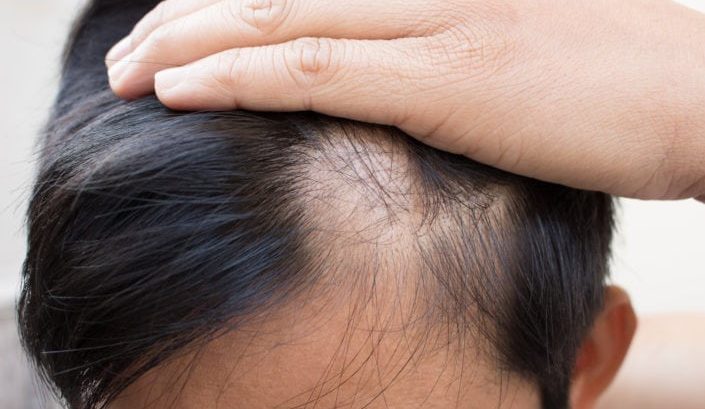When to See a Dermatologist for Hair Loss
Hair loss is a common reason for a visit to the dermatology office. Losing hair is a normal part of our biology. It is absolutely normal to lose anywhere between 50-150 hairs every single day. However, if your hair is falling out in clumps, if you notice circular areas of hair thinning or you are simply concerned about your hair shedding – it is time to make an appointment with us.
We lose hair for many reasons. One of the most common reasons someone is after a major stressor or life event. This type of hair loss, called Telogen Effluvium, generally occurs 90 or so days after the ‘event’. A common scenario might be after having a baby, major surgery with general anesthesia, loss of a loved one or even an event such as an illness or change in jobs. This type of hair loss is characterized by overall thinning all over the scalp, without clumps of hair loss. Although this condition generally resolves on its’ own within a year, there are some strategies to help and your provider can walk you through all of the options.
Telogen Effluvium
Telogen effluvium is a condition in which diffuse hair loss occurs about three months after a major life event such as getting married, giving birth to a baby, undergoing major surgery, or illness. Even diet or emotional stress can trigger telogen effluvium. People typically notice an overall thinning of hair throughout the scalp. The good news is that it resolves usually in 6 months with spontaneous new hair growth. No intervention or treatment is necessary.
Androgenetic hair loss is another type, characterized for men by thinning of the hair on top of the scalp or towards the forehead. For women it presents as widening of their central hair part or significant thinning on the top of the scalp. Hereditary factors play a large role in this condition. Thankfully, there are numerous treatment options – including oral pills, injections, and topical foams.
Auto-immune conditions can cause hair loss. Called Alopecia Areata, this occurs when a person’s own immune system attacks the hair follicles. Often times, this results in coin-shaped areas of total or near-total hair loss. Alopecia areata tends to respond well to in-office treatments like injections, as well as systemic or topical medications.
If you have been losing more hair than normal, call our offices today to make an appointment with one of our medical providers.

